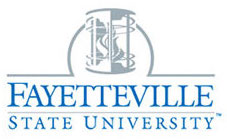 The College of Humanities and Social Sciences at historically Black Fayetteville State University in North Carolina has announced the establishment of the Gillis-Jones Institute for Ethics and Leadership.
The College of Humanities and Social Sciences at historically Black Fayetteville State University in North Carolina has announced the establishment of the Gillis-Jones Institute for Ethics and Leadership.
William J. Gillis, of Fayetteville, North Carolina, committed $750,000 to honor a “simple act of kindness in troubled times” exchanged in 1945 between his father, Duncan Alexander “Zan” Gillis, and William Jones, a former business manager at what is now Fayetteville State University.
On October 17, 1945, Zan Gillis and William Jones were conducting business at Branch Banking and Trust Company in Fayetteville when Gillis returned to his car to find a money box on the running board that Jones had inadvertently misplaced. Gillis immediately returned the money box to the bank, declining the reward that was offered. Jones wrote a simple yet profound thank you letter to Gillis, which survives them both.
“For some years I have wanted to pay a token of honor, respect, and gratitude to the memory and life of my parents,” Will Gillis said. “I remembered a letter [sent] to my father from Mr. William Jones, the business manager of Fayetteville State Teachers’ College [FSU predecessor] at the time, thanking him for a simple act of kindness he had shown him, and it stuck with me. I have always held FSU in very high regard both for its past achievements and potential for a great future. Through the Gillis-Jones Institute, I hope to help nurture and encourage that same kind of humanity, honesty, and civility that my father and Mr. Jones exchanged more than 75 years ago.”
“We are immensely grateful for the vision and leadership of William Gillis. His father, Zan Gillis, and William Jones set an example of how we all should treat one another regardless of the circumstances,” said Darrell T. Allison, chancellor of Fayetteville State University. “It is upon these very basic but all-important qualities — kindness and morality — that we will build in establishing the Gillis-Jones Institute here at FSU. These are high principles for life and work, and they will be cemented into our core curriculum for our university as we teach future generations.”










